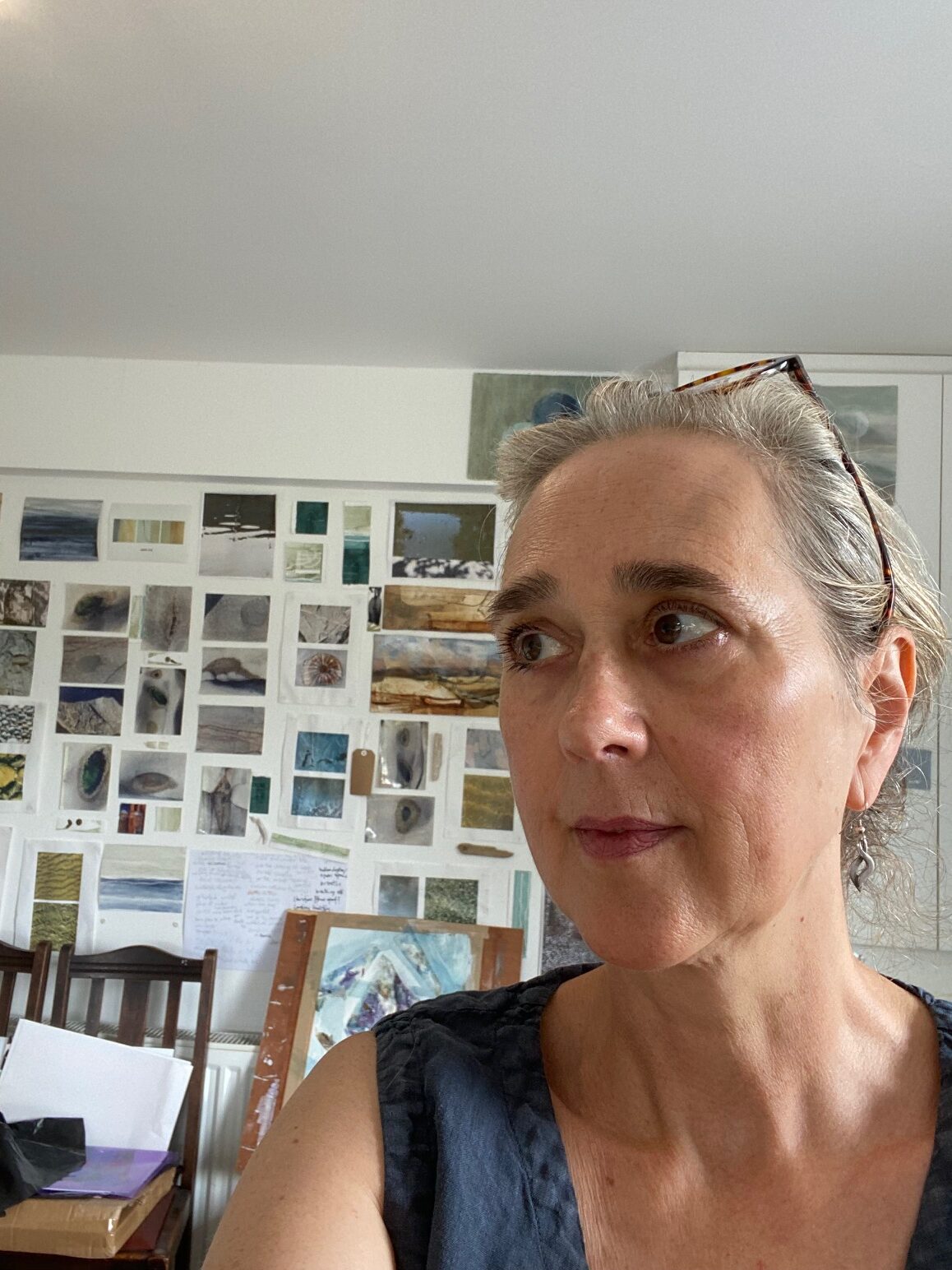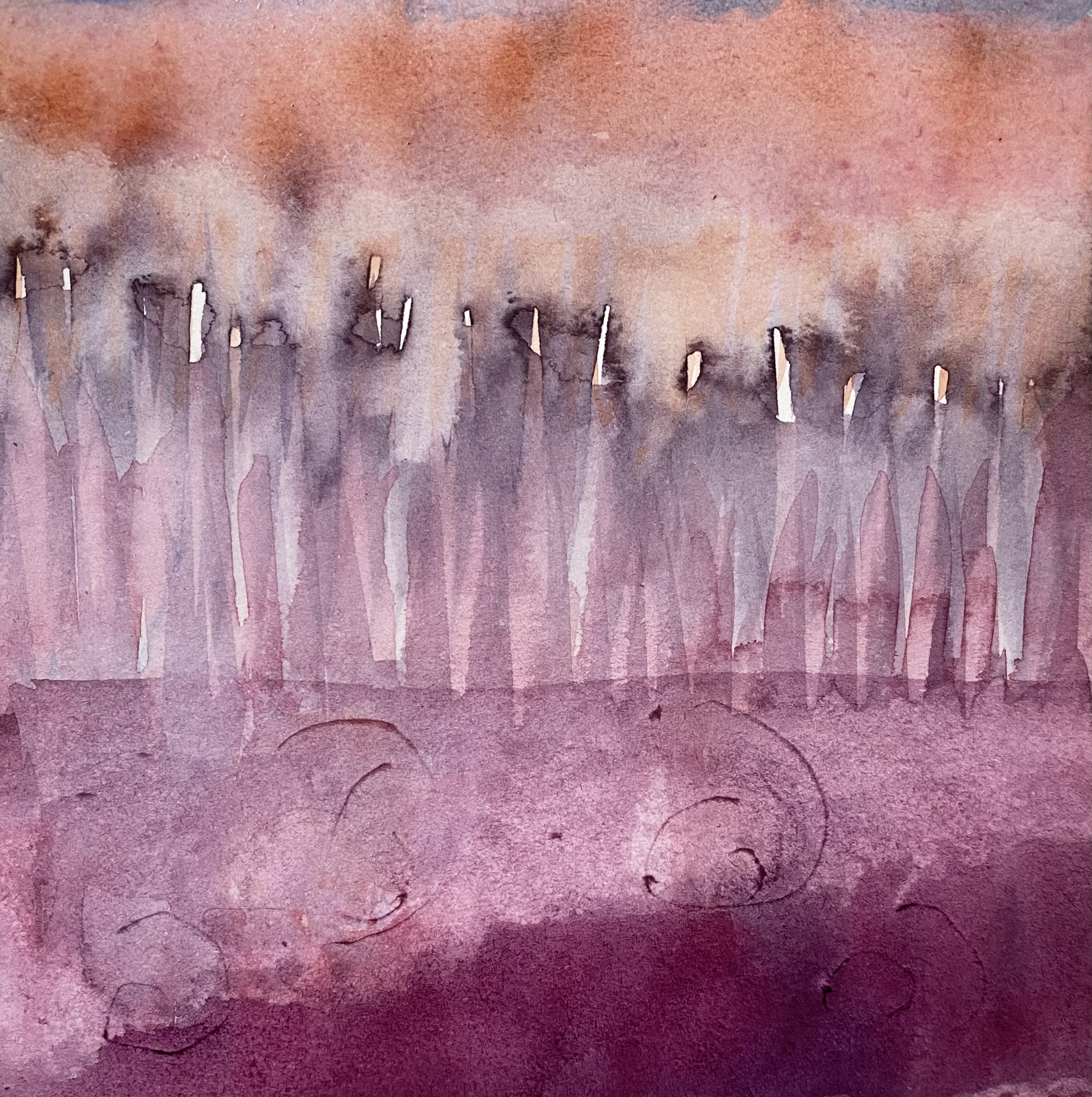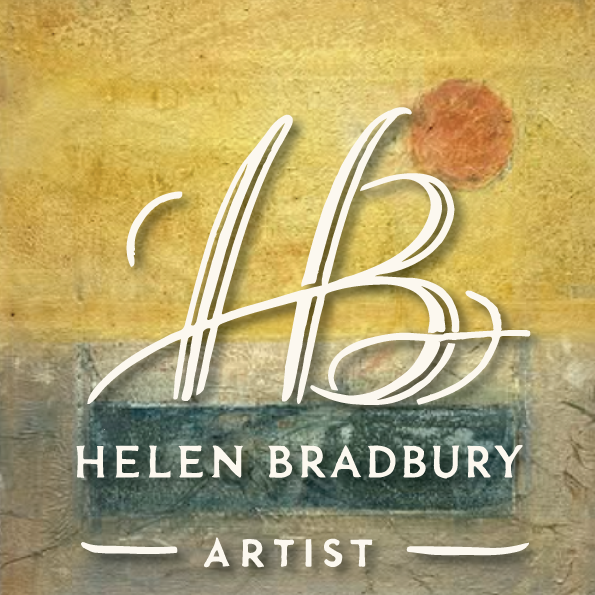
meet Helen
About Helen Bradbury
Rooted in the farmlands of County Antrim, Helen Bradbury is a painter and printmaker whose studio practice draws deeply from the elemental rhythms of the natural world. Her work is shaped by weather and landscape, quiet observation and layered memory — each painting an echo of her surroundings, each mark a conversation with the land.
For over three decades, Helen has cultivated a creative life that weaves together visual art with a strong social ethos. Alongside her studio practice, she works within communities — initiating exhibitions, leading residencies, and collaborating on projects across the statutory, private and voluntary sectors. Her practice is collaborative, generous, and quietly transformative.
Helen brings a thoughtful, skilled approach to every partnership, whether working alongside healthcare professionals, responding to a place or brief, or developing work that invites others into the creative process. She has been commissioned by individuals, organisations and institutions — each project shaped through personal connection and a deep respect for context.
Her commissioned works and community-led initiatives have reached far beyond her rural studio — linking with galleries, artists and communities across Ireland, the UK, Italy, America, and Tel Aviv. Wherever the work takes her, Helen brings with her the grounded clarity of home, and a belief in art as a shared, living practice.

In Her Own Words
Artist, printmaker, collaborator.
When someone sees your work for the first time, what do you hope they feel or take away from it?
Empathy, feeling soothed, an opening of perspective, warmth, enquiry, connected, happy, interest, questioning, wow! opportunity.
What sparks your creativity—what kinds of places, memories, or moments tend to get your ideas flowing?
My own journey, places I’ve been and experiences. Being aware of the world around me and looking underneath or through something…. all sparked by nature and place, landscape and community.
Tell me about your materials and process. Do you have any rituals, favourite tools, or stages that you really enjoy?
Love the beginning and the end… the middle is where the hard work is as you become aware of how and what it is you are saying. It is a process of change and understanding. My tools are very simple but the canvas and paper have to be right. I stretch my own raw canvas and get my stretchers custom made. Stretching a canvas is the beginning of the process and it distills your thinking. This is how I have done things since I was a student.
How would you describe the themes or ideas that often come through in your work, even if you don’t plan them?
Hugely influenced by nature and the earth cycles… the sun moon and tides and the interdependency consistency. Usually a spark from something I have seen that resonates as a seed. If I see a painting it usually changes as I journey in the making.
Small unnoticeable things becoming big.
What’s the story of how you became an artist? even if you don’t plan them?
I don’t know there is one. It grew as I did. It is how I live my life not a job or vocation and I get to share it with others … what’s there not to love.
If you imagine someone standing in front of your work at a gallery, what kind of conversation would you want to have with them?
How what they see connects personally. The viewer always finishes the painting from their own experience and thinking. Each viewer births the painting freshly from their own experience.
Are there any particular pieces of your work that hold strong meaning for you? If so, tell me why.
Many. All of the pieces evolve from an emotional response so therefore have a personal dialogue that is rarely explained or needed by the viewer because the piece works for itself and them – although I will talk of a work too if there is interest.
What does a day in your studio (or creative space) look like, even on a quiet day?
A good day is dependent on being in the right frame of mind. Sometimes it can take a while to settle. Once there if it goes well there is a beautiful memory loss where you cant ever replicate something again because you don’t know how you got there
This the same for work in the studio or more responsive, direct work in the landscape etc. That state of loss of mind produces the best work.
What would you say to someone thinking about buying one of your pieces or commissioning you—but they’re not quite sure yet?
Good question… very good question. Take your time, shall we take it to look at it in the space it is going to live in. It will be a gut reaction if it is the right painting in the right place and we can do a commission if we can work out why it doesn’t work.
